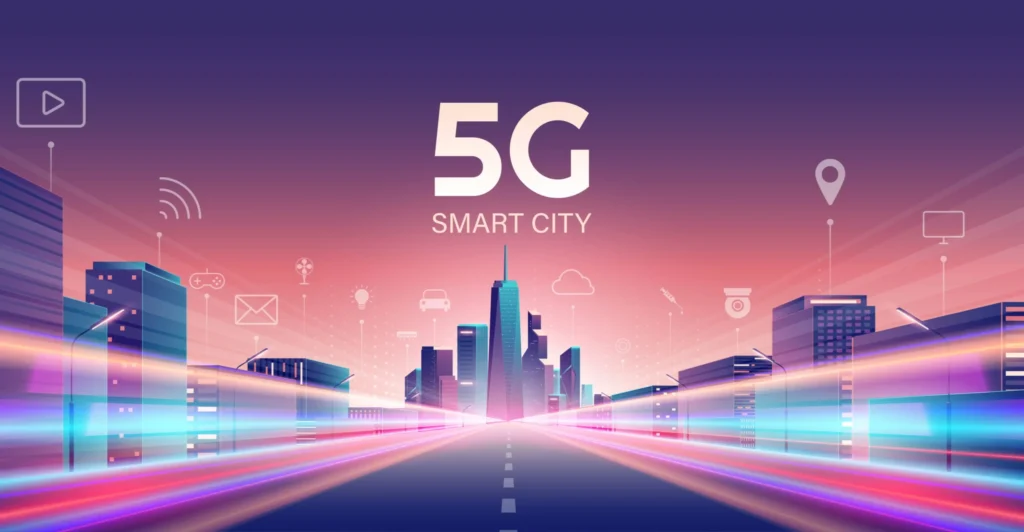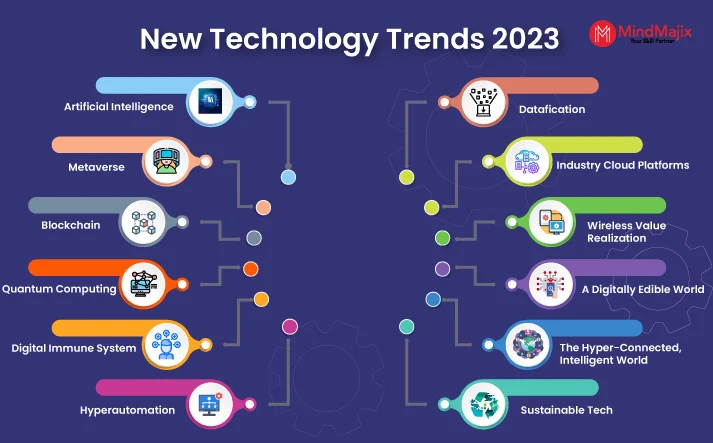5G Expansion: What It Means for the Future of Connectivity and Smart Cities
The ongoing expansion of 5G technology is set to revolutionize the way we connect and communicate, paving the way for a future where smart cities and advanced connectivity are the norm. With its promise of ultra-fast speeds, low latency, and massive device connectivity, 5G has the potential to enable a wide range of new technologies and services that will shape the future of urban living. From autonomous vehicles to advanced healthcare systems, the impact of 5G expansion on connectivity and smart city development is poised to be profound.
The advancement of 5G technology is expected to bring about a significant transformation in the realm of connectivity and urban development. As the world becomes more interconnected, the demand for high-speed, reliable connectivity will only continue to grow. With the deployment of 5G networks, cities will be able to support a wide array of connected devices and services, ranging from smart transportation systems to real-time environmental monitoring. This will not only enhance the efficiency and convenience of urban living, but also open up new possibilities for innovation and economic growth.
1. What is 5G Expansion?
5G expansion refers to the ongoing deployment and implementation of 5G technology across the globe. 5G, or fifth-generation wireless technology, represents the latest advancement in mobile connectivity, offering significantly faster speeds, lower latency, and increased capacity compared to its predecessor, 4G LTE. As part of the expansion, telecommunications companies are investing in infrastructure upgrades to support 5G networks, including the installation of new small cell sites, upgrading existing towers, and deploying advanced equipment to enable 5G connectivity.
The expansion of 5G is not only limited to mobile devices but also extends to various industries and sectors, including smart cities, healthcare, manufacturing, transportation, and entertainment. This next phase of connectivity is set to revolutionize how we interact with technology and the world around us, paving the way for innovative applications such as autonomous vehicles, remote healthcare services, and real-time monitoring and control of critical infrastructure.
2. Impact on Connectivity and Communication
The expansion of 5G is set to have a profound impact on connectivity and communication. With its significantly faster speeds and lower latency, 5G technology will enable seamless and high-bandwidth communication, allowing for real-time video conferencing, ultra-high-definition streaming, and immersive virtual reality experiences. This enhanced connectivity will not only benefit individual users but also support the growing demand for data-intensive applications in various industries.
Furthermore, 5G expansion will enable reliable and high-speed connectivity in remote and underserved areas, bridging the digital divide and providing equal access to digital resources. This will open up new opportunities for remote work, online education, and telemedicine, transforming the way we work, learn, and access healthcare services.
3. Advancements in Smart Cities
5G expansion is a key enabler for the development of smart cities, as it provides the foundation for interconnected and intelligent urban infrastructure. With 5G technology, smart cities can implement advanced systems for traffic management, public safety, energy efficiency, and environmental monitoring. These systems rely on real-time data collection and analysis, which 5G networks can support with their high-speed, low-latency capabilities.
Additionally, 5G enables the deployment of Internet of Things (IoT) devices on a massive scale, allowing for seamless connectivity and communication between various sensors, devices, and infrastructure components. This interconnected network of IoT devices forms the backbone of smart city initiatives, enabling efficient resource management, predictive maintenance, and enhanced quality of life for residents.
4. Enhanced Industrial Applications
5G expansion is set to revolutionize industrial applications by enabling the widespread adoption of advanced technologies such as augmented reality (AR), virtual reality (VR), and robotics. With its low latency and high bandwidth, 5G facilitates real-time control and monitoring of industrial processes, paving the way for the deployment of autonomous machinery and smart manufacturing systems.
Furthermore, 5G connectivity allows for the seamless integration of Industrial IoT (IIoT) devices, enabling predictive maintenance, remote monitoring, and data-driven optimization of industrial operations. This level of connectivity and automation holds the potential to increase productivity, improve operational efficiency, and drive innovation across various industrial sectors.
5. Implications for Healthcare
5G expansion has far-reaching implications for the healthcare industry, enabling the development of telemedicine, remote patient monitoring, and advanced medical diagnostics. With 5G’s high-speed, low-latency connectivity, healthcare providers can deliver real-time telehealth services, conduct remote consultations, and transmit large medical imaging files without delays.
Moreover, 5G facilitates the deployment of connected medical devices and wearables, allowing for continuous monitoring of patient vitals and health data. This level of connectivity empowers healthcare professionals to make informed decisions and provide timely interventions, ultimately improving patient outcomes and expanding access to quality healthcare services, especially in underserved areas.
6. The Role of 5G in Transportation
5G expansion is poised to transform the transportation industry by enabling the development of connected and autonomous vehicles (CAVs). With its low latency and high reliability, 5G connectivity is essential for CAVs to communicate with each other, infrastructure, and central control systems in real time, ensuring safe and efficient operation on the roads.
Additionally, 5G technology supports advanced traffic management systems, smart infrastructure, and real-time navigation services, contributing to improved traffic flow, reduced congestion, and enhanced overall safety. This level of connectivity and intelligence in transportation has the potential to revolutionize urban mobility and pave the way for more sustainable and efficient transportation solutions.
7. Security and Privacy Considerations
As 5G networks expand and connect an increasing number of devices and systems, security and privacy considerations become paramount. With the proliferation of IoT devices and the massive amounts of data transmitted over 5G networks, ensuring the security and privacy of this data is critical to maintaining trust and reliability in the digital ecosystem.
Telecommunications companies, technology providers, and regulatory bodies are actively working to develop and implement robust security measures, encryption protocols, and privacy safeguards to protect 5G networks and the data transmitted over them. Additionally, advancements in technologies such as blockchain and secure multi-party computation are being explored to enhance the security and privacy of 5G-enabled systems and applications.
8. Regulatory and Policy Frameworks
The expansion of 5G is subject to various regulatory and policy frameworks that govern spectrum allocation, infrastructure deployment, and network security. Governments and regulatory bodies play a crucial role in shaping the 5G landscape by establishing guidelines, standards, and incentives to support the deployment and adoption of 5G technology.
Furthermore, policies related to data privacy, cybersecurity, and competition in the telecommunications industry also influence the trajectory of 5G expansion. As 5G networks become increasingly integrated into critical infrastructure and essential services, regulatory and policy frameworks will continue to evolve to address the unique challenges and opportunities presented by this next-generation technology.
9. Environmental and Sustainability Impact
The expansion of 5G technology raises considerations regarding its environmental impact and sustainability. The deployment of 5G infrastructure, including small cell sites and network equipment, requires careful planning and management to minimize environmental disruption and energy consumption.
Efforts are underway to develop energy-efficient 5G technologies, optimize network deployment strategies, and integrate renewable energy sources into 5G infrastructure. Additionally, 5G-enabled smart city initiatives, such as intelligent energy management and environmental monitoring, have the potential to contribute to sustainability goals and reduce the ecological footprint of urban areas.
10. Future Opportunities and Challenges
5G expansion presents a myriad of future opportunities and challenges across various sectors. From enabling transformative technologies and applications to addressing concerns related to security, privacy, and sustainability, the widespread adoption of 5G will shape the future of connectivity and smart cities.
As 5G networks continue to expand and evolve, collaboration among industry stakeholders, ongoing research and development, and proactive engagement with regulatory and policy frameworks will be essential in harnessing the full potential of 5G technology while addressing the challenges and considerations that accompany its deployment and integration into our interconnected world.
| Topic | Details |
|---|---|
| What is 5G Expansion? | 5G expansion refers to the deployment and implementation of 5G technology in various regions, enabling faster and more reliable wireless communication. |
| Impact on Connectivity | 5G expansion will lead to ultra-fast internet speeds, lower latency, and increased network capacity, revolutionizing the way devices connect and communicate. |
| Implications for Smart Cities | 5G will empower smart city initiatives by enabling connected infrastructure, IoT devices, and real-time data analytics, leading to more efficient and sustainable urban environments. |
| Challenges and Considerations | While 5G expansion offers numerous benefits, it also raises concerns about security, privacy, and digital divide, necessitating careful planning and regulation. |
| Future Outlook | 5G expansion is set to revolutionize connectivity and pave the way for innovative applications in various sectors, from healthcare and transportation to entertainment and manufacturing. |
conclusıon
5G Expansion: What It Means for the Future of Connectivity and Smart Cities
The expansion of 5G technology is set to revolutionize connectivity and pave the way for the development of smart cities. With its ultra-fast speeds and low latency, 5G will enable a wide range of applications, from connected infrastructure to real-time data analytics, transforming urban environments into more efficient and sustainable spaces. However, careful consideration of security, privacy, and equitable access is crucial to fully harness the potential of 5G expansion. Overall, 5G expansion holds the promise of reshaping the way we connect, communicate, and interact with our surroundings.




